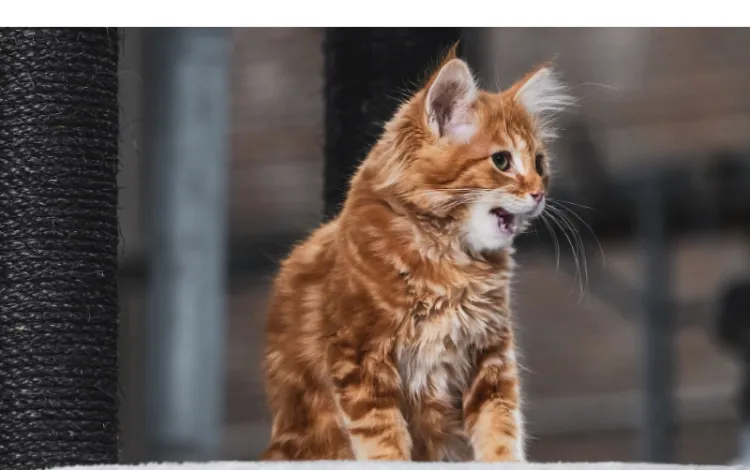Maine Coon cats are known for their striking appearance, gentle temperament, and strong bonds with their owners. These lovable giants are often called the “dogs of the cat world” due to their social and loyal nature.
In this blog post, we’ll explore the topic of separation anxiety in Maine Coon cats, understanding why they’re prone to it and how to help them cope.
Fun Fact #1: Did you know that Maine Coon cats are the largest domesticated cat breed? Some males can weigh up to 18 pounds or more!
Understanding Separation Anxiety in Cats
Before we delve into the specifics of Maine Coon cats and separation anxiety, let’s first define what separation anxiety is and how it manifests in our feline friends.
What is Separation Anxiety?
Separation anxiety is a distressing condition where a pet becomes extremely stressed when separated from its owner or primary caregiver. This can result in various undesirable behaviors and physical symptoms.
Signs and Symptoms
Cats experiencing separation anxiety may display some of the following signs:
- Excessive vocalization (meowing, yowling) when left alone
- Destructive behavior (scratching furniture, knocking over items)
- Inappropriate elimination (urinating or defecating outside the litter box)
- Decreased appetite or refusal to eat
- Over-grooming or hair pulling
- Increased clinginess or attention-seeking when the owner is home
It’s essential to rule out any medical issues or other stressors that might cause these behaviors before attributing them to separation anxiety.
Fun Fact #2: Maine Coon cats are excellent hunters and were initially bred in North America for their ability to catch rodents in the harsh winter climates.
Maine Coon Cats and Separation Anxiety: Why They’re Prone
Now that we have a better understanding of separation anxiety in cats, let’s explore why Maine Coon cats, in particular, may be more susceptible to this condition.
Their Social Nature
Maine Coon cats are known for being exceptionally social and interactive. They often form strong bonds with their family members, including other pets.
This social nature makes them more prone to experiencing separation anxiety when left alone for extended periods.
Attachment to Their Owners
These gentle giants often develop a strong attachment to their owners, and their loyalty can rival that of a dog. They love being near their humans and engaging in activities like playing, grooming, or hanging out together.
This strong bond makes the absence of their favorite person even more distressing, potentially triggering separation anxiety.
It’s important to remember that not all Maine Coon cats will experience separation anxiety. Still, their social and affectionate nature makes them more susceptible than other, more independent cat breeds.
Preventing and Managing Maine Coon Separation Anxiety
If you have a Maine Coon cat prone to separation anxiety, don’t worry! You can implement several strategies to help prevent and manage this issue, ensuring a happier, less-stressed kitty.
Establishing a Routine
Cats thrive on routine, and Maine Coon cats are no exception. Setting a consistent schedule for feeding, playtime, and cuddling can help your cat feel more secure when you’re away.
This predictability can reduce anxiety and provide a sense of comfort.
Enriching Your Cat’s Environment
An environment that caters to your Maine Coon’s needs can significantly reduce separation anxiety. Provide them with plenty of toys, scratching posts, and cozy hiding spots.
Consider investing in puzzle feeders or interactive toys that will keep their mind engaged while you’re gone.
Spending Quality Time Together
Ensuring you spend quality time with your Maine Coon cat when you’re home is crucial. Play with and groom them, and provide love and attention.
This bonding time will help reassure your cat that you’ll always come back, even if you have to leave them for a while.
Training Techniques to Reduce Separation Anxiety
In addition to preventative measures, there are specific training techniques that can help reduce separation anxiety in your Maine Coon cat.
These methods focus on changing your cat’s emotional response to being alone.
Gradual Desensitization
Desensitization involves gradually increasing the amount of time your cat spends alone, helping them become more comfortable with your absence.
Start with short departures, gradually increasing the duration as your cat becomes less anxious. When you return, reward your cat with praise or treats, reinforcing positive associations with your departures.
Counter-Conditioning
Counter-conditioning aims to change your cat’s emotional response to being alone. For example, you could provide a special treat or toy that your cat only gets access to when you’re away.
Over time, your cat will associate your departure with positive experiences, reducing their anxiety.
Remember, patience and consistency are key when implementing these training techniques. It may take some time to see significant improvements, but with dedication, you can help your Maine Coon cat overcome their separation anxiety.
When to Seek Professional Help
While many Maine Coon cats can overcome separation anxiety with the proper care and training, sometimes the issue can be more severe, warranting professional help. It’s essential to know when to seek expert assistance.
Recognizing Severe Anxiety
If your cat’s separation anxiety does not improve or worsen despite your best efforts, it’s time to consult a professional.
Signs of severe anxiety may include self-injury, destructive behavior causing damage to your home, or complete refusal to eat when you’re away.
Consulting with a Veterinarian or Behaviorist
A veterinarian can rule out any underlying medical issues that might contribute to your cat’s anxiety. They may also recommend medications that can help manage your cat’s anxiety in conjunction with behavioral modification techniques.
Alternatively, a certified feline behaviorist can provide specialized advice and develop a tailored training plan to address your Maine Coon cat’s separation anxiety.
They’ll work with you and your cat to create a customized approach that meets your cat’s specific needs.
Don’t hesitate to seek professional help if you’re concerned about your cat’s well-being. They’re there to support you and your furry friend on your journey to a happier, less anxious life together.
Conclusion: Strengthening Your Bond While Easing Anxiety
Maine Coon cats are remarkable creatures, known for their strong bonds with their owners.
While this deep connection can sometimes lead to separation anxiety, there are numerous ways to help your feline friend feel more secure and comfortable when you’re apart.
By understanding separation anxiety, creating a consistent routine, enriching your cat’s environment, and employing specific training techniques, you can help your Maine Coon cat overcome this challenging issue.
Don’t be afraid to seek professional help if necessary; sometimes, an expert’s guidance can make all the difference.
Ultimately, working together to ease your Maine Coon cat’s separation anxiety will not only improve their quality of life but also strengthen the bond you share.
With patience, understanding, and a little bit of effort, you can ensure your loving companion is as happy and stress-free as possible, even when you can’t be by their side.
Read some of our related posts below;
- Why Maine Coon cats are the worst
- Are Maine Coon cats considered high maintenance?
- Pros and Cons of having a Maine Coon cat
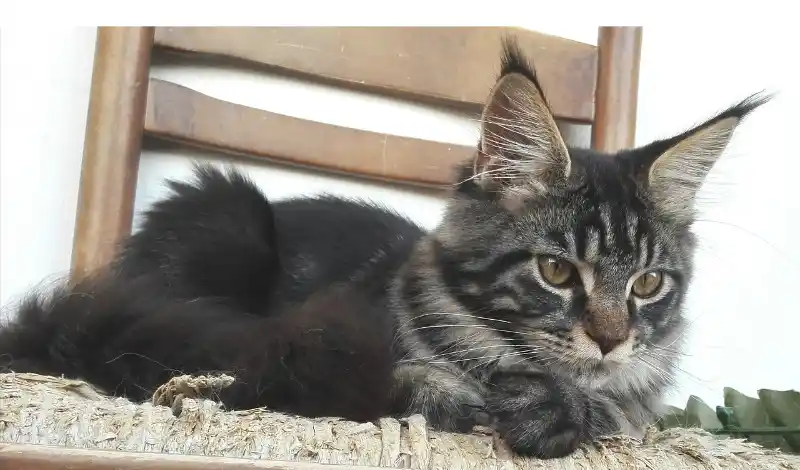
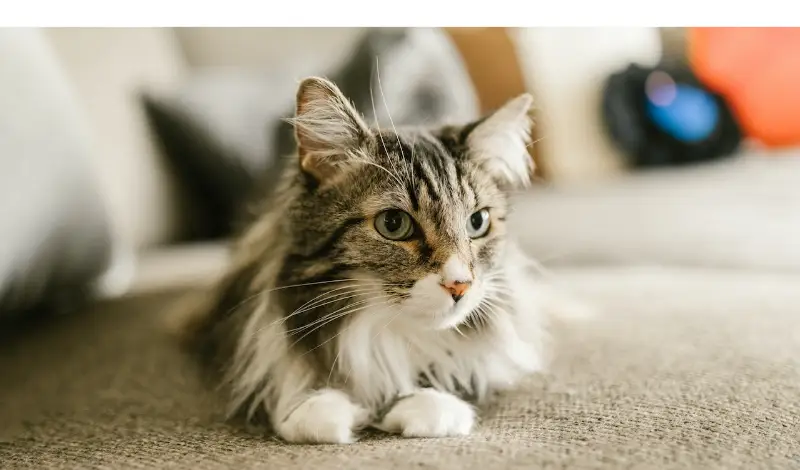
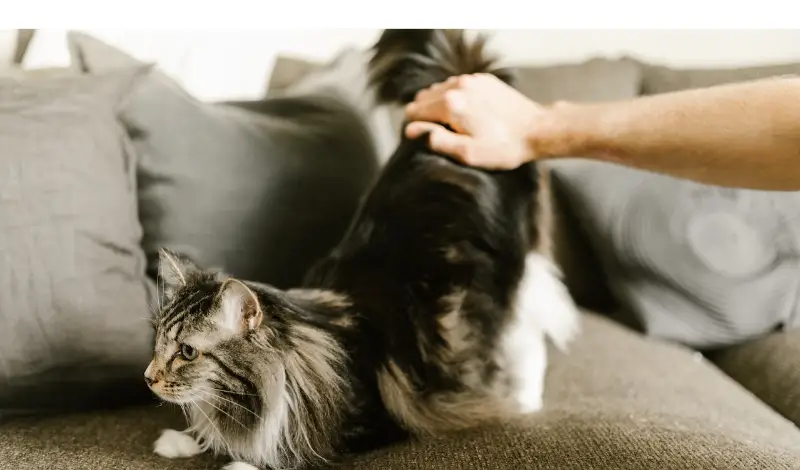
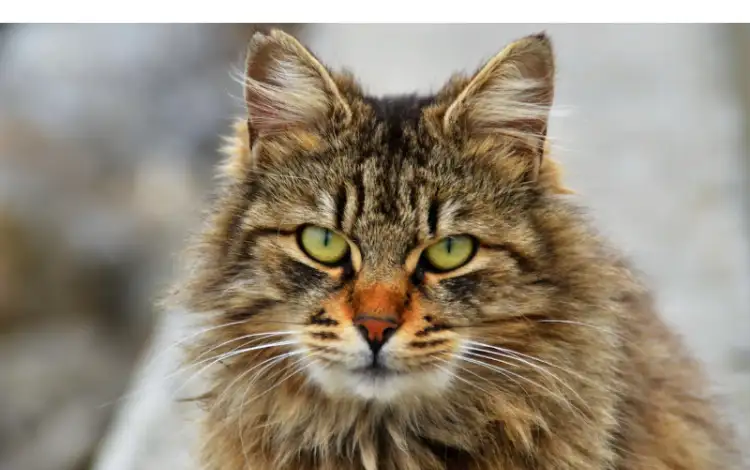
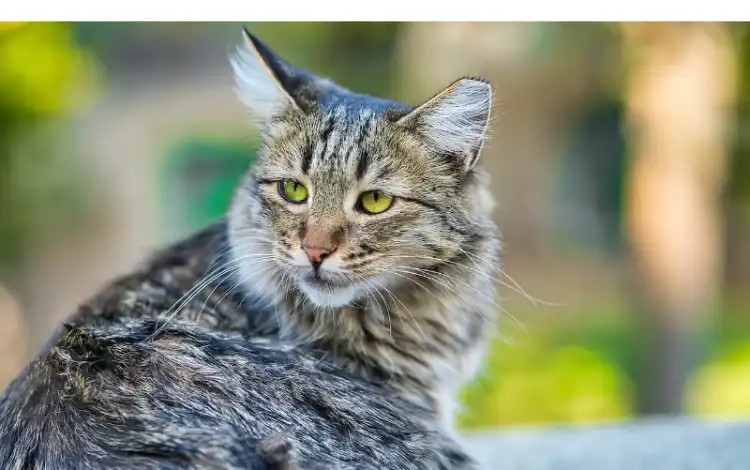
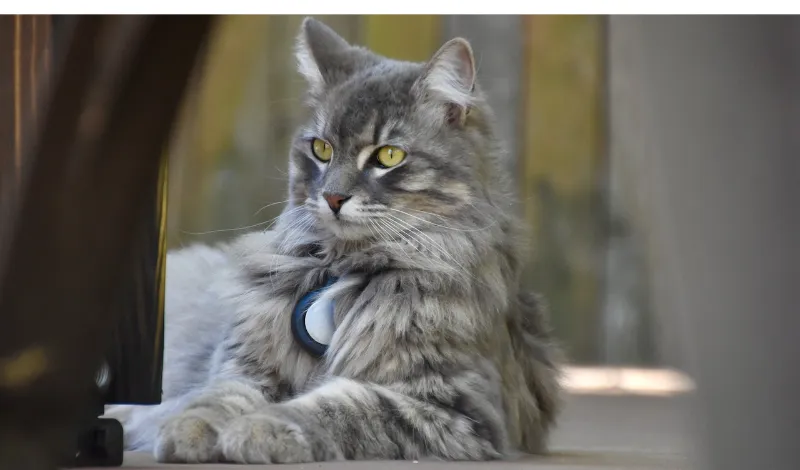
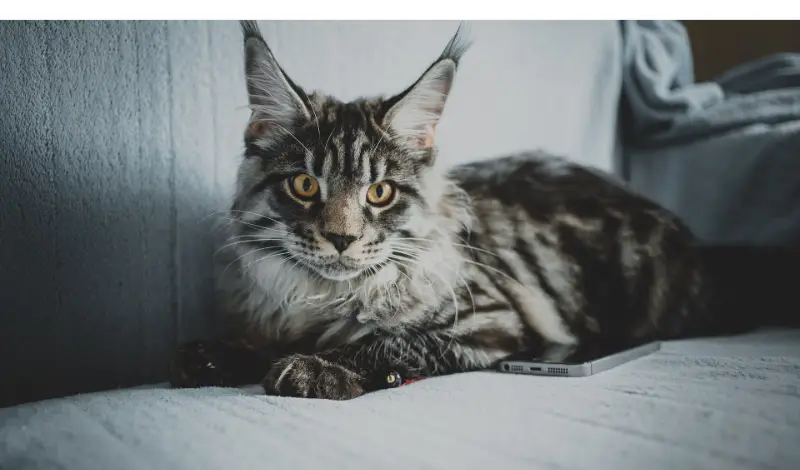
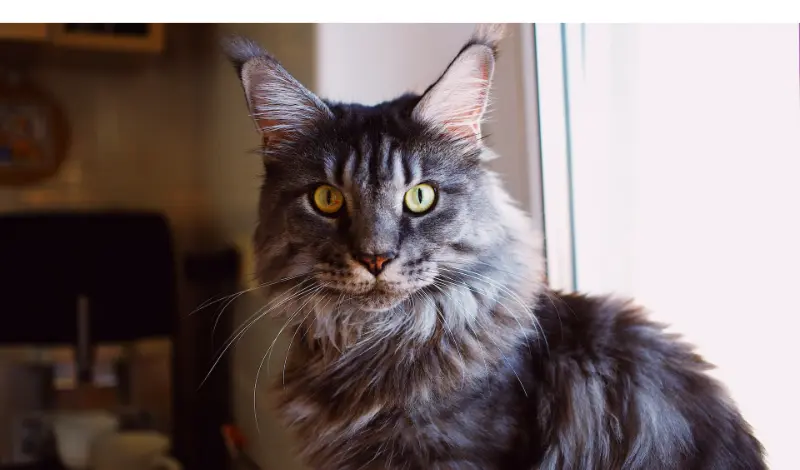
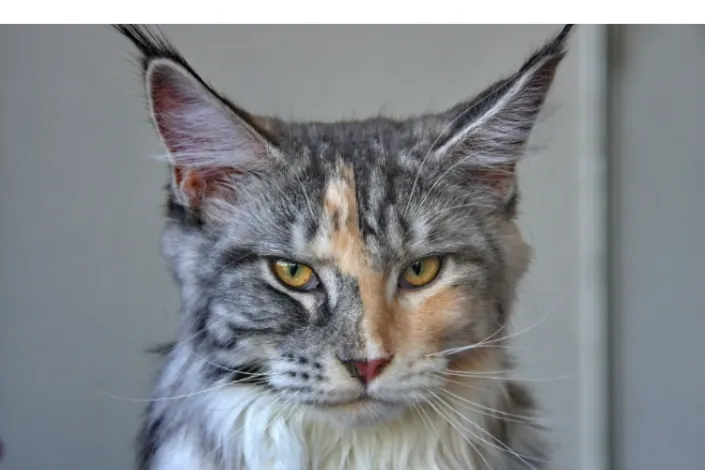
![why-maine-coon-follow-me-everywhere]](https://www.howtoanimal.com/wp-content/uploads/2023/04/Featured_Image_why-maine-coon-follow-me-everywhere.webp)
